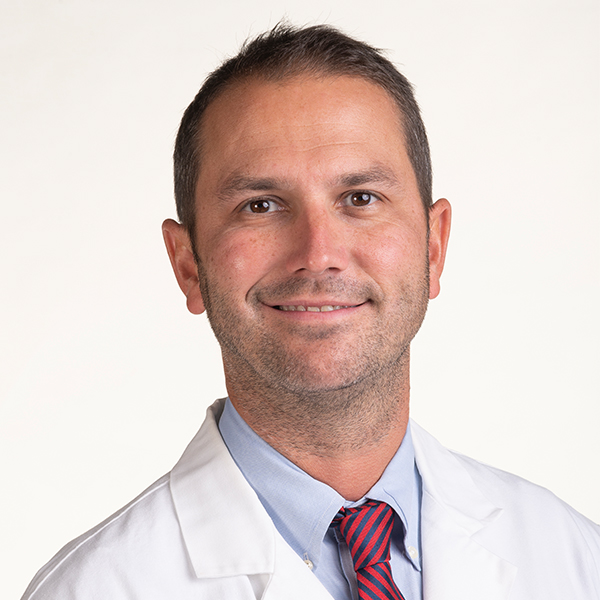St. Mary’s Hospital is on the leading edge of stroke care. When a stroke strikes, our team uses state-of-the-art processes, medications and equipment to restore blood flow, save lives and reduce the risk of disability.
We are proud to be the first hospital in Georgia to be certified by The Joint Commission as a Thrombectomy-Capable Stroke Center. This means our team is available 24/7 to remove the large-vessel blood clots that cause some of the most severe strokes. It is the culmination of nearly two decades of commitment to enhancing stroke care, beginning with our 2004 Joint Commission certification as one of the first 20 Primary Stroke Centers in the United States.
24/7 Stroke Care
From emergency care to lifelong prevention, St. Mary’s is the region’s leader in stroke care. Emergency services are available 24/7, including high speed diagnostics, the clot-busting drug Alteplase (tPA), and mechanical thrombectomy. Inpatient critical care, step-down care, and rehabilitative care are also available 24/7/365.
On the leading-edge
Our mechanical thrombectomy experts, Dr. Feroze Afzal and Dr. Neil Woodall, are committed to excellence in neurosurgical patient care. They provide medical treatment that is grounded in progressive, evidence-based medicine, utilizing the most current innovations and technologies. They strive to promote the highest level of function for every patient by addressing each individual's needs with compassion and kindness.

Neil Woodall, MD
Neurological Surgery

Feroze Afzal MD
Vascular Neurologist
Focused inpatient care
Care of stroke patients admitted to St. Mary’s is directed by our team of neurohospitalists: Dr. Alan Morgan and Dr. Catherine Lockhart. These experts in neurology do not see patients in an outpatient clinic. That means they are free to devote their full time, attention and skill to inpatients with stroke and other neurological conditions.
Leading-Edge Care
The clot-busting drug Alteplase
St. Mary’s has been a leader in administering the clot-busting drug Alteplase, a tissue plasminogen activator, since shortly after the drug was first approved for use in stroke by the FDA. When deemed medically appropriate, Alteplase can be administered to dissolve the blood clots that cause ischemic stroke. The sooner treatment begins, the more brain tissue can be saved. But Alteplase must not be given to the approximately 20 percent of patients whose stroke is caused by a ruptured blood vessel. That means fast, high-tech testing is essential. All three St. Mary’s hospitals provide this testing in minutes.
Teleneurology 24/7
Only a stroke specialist can authorize the use of Alteplase. So, in addition to our neurohospitalists in Athens, St. Mary’s Health Care System also utilizes a teleneurology program in partnership with Augusta University. AU stroke specialists are available 24/7 to examine patients remotely, review diagnostic tests and images, and consult with the physician at the bedside. With teleneurology, we are able to quickly and safely administer Alteplase to eligible patients within minutes of their arrival at any of our hospitals: St. Mary’s Hospital in Athens, St. Mary’s Sacred Heart Hospital in Lavonia, or St. Mary’s Good Samaritan Hospital in Greensboro.
Mechanical Thrombectomy
Drs. Woodall and Afzal perform this potentially life-saving procedure using St. Mary’s state-of-the-art neurointerventional biplane angiography system. The system produces highly detailed, 3D views of blood vessels leading to and deep within the brain. It allows the specialists to find and remove large-vessel blood clots without major surgery. Instead, they make a small incision in the upper leg and then thread thin, flexible tubes called catheters through the inside of blood vessels to reach and remove the blockage in the brain.
In addition to mechanical thrombectomy, the biplane represents a giant leap forward in helping physicians diagnose aneurysms and other abnormalities inside the blood vessels of the brain and neck.

